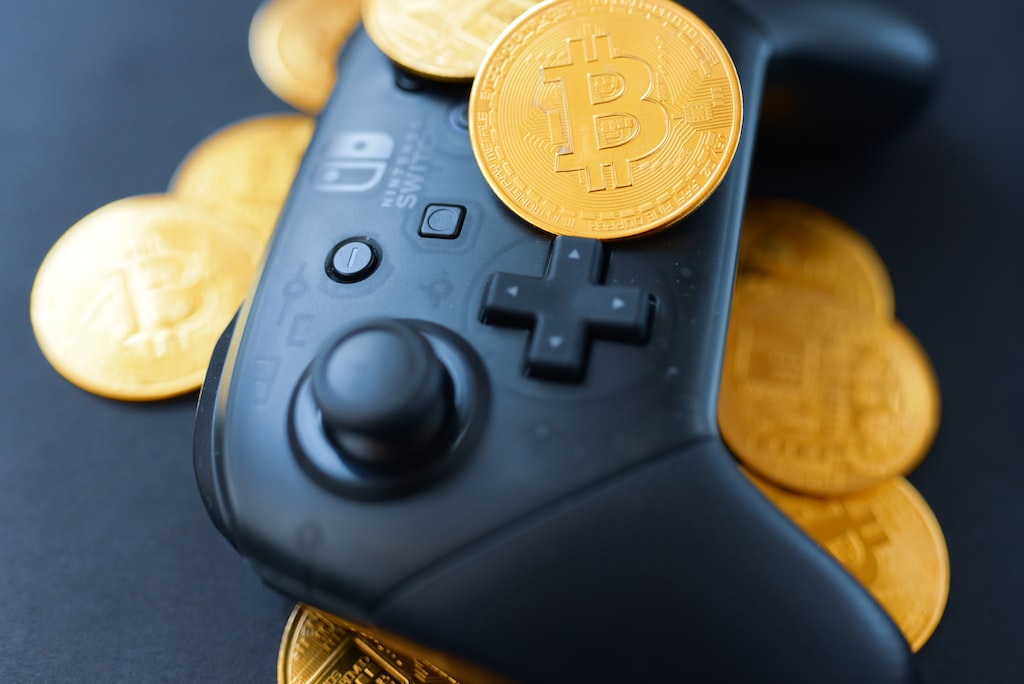
The gaming industry is no stranger to change and innovation.
From arcade games to consoles, and later mobile gaming, players have adapted to new styles and formats over the decades.
But none have revolutionized the gaming experience quite like blockchain games.
Blockchain gaming is the intersection of entertainment and a decentralized financial system.
What does this mean?
This article explores the world of web3 games and how both gamers and non-gamers can profit from this new emerging gaming ecosystem.
What is Blockchain Gaming?
Blockchain games are built on the same technology as popular cryptocurrencies Ethereum and Bitcoin.
The blockchain is a decentralized platform. Computers work around the clock to verify transactions to confer ownership of virtual currency or assets and prevent fraud.
In the context of gaming, the blockchain allows for the integration of the real-world economy.
Items that players acquire in games are no longer ‘walled in’ in that ecosystem.
Instead, in-game assets can be moved, traded, or sold for financial gain. Hence, games are no longer just entertainment, but also provide a financial incentive to players.
For publishers, this means more hours spent on gameplay and increased profit or a win-win scenario for both parties.
Where can blockchain games be found?
Traditional gamers are already familiar with digital platforms such as Steam which allows players to purchase and play a vast selection of titles online.
To play blockchain games, players can use aggregators such as Mirror World.
Examples of popular blockchain-based games include Axie Infinity and Alien Worlds where players can raise virtual pets or mine planets for virtual currency and items.
Characteristics of Web3 Gaming
As the Web3 gaming market is emerging, it’s important to understand what makes these games unique.
A defining feature of Web3 games is that they give players a sense of ownership of their experience. Other defining characteristics include allowing players to earn money by playing and transparency or the ability to vote on how games are developed or their outcome.
Let’s look at these in detail:
Transfer of ownership
Unlike in traditional games, in-game assets in web3 games belong to players. Whether it’s a special character, weapon, or skin, the blockchain authenticates ownership.
Beyond owning in-game items, web3 games also allow players to create unique content and own those experiences.
This concept is popular in games such as The Sandbox where virtual plots of land are being bought by players, brands, and celebrities. When combined with the metaverse, players can create virtual user-generated experiences such as access to a virtual art exhibition. These experiences and assets are owned by the creator rather than the publisher.
Ability to earn money
Besides the sale of in-game assets, many web3 games implement the play-to-earn model. In these games, players earn rewards, whether it be in-game items or coins, after completing tasks, leveling up, or winning battles against other players.
This incentivizes players to keep returning and in turn create a thriving economic ecosystem.
Transparency
In web3 games, no central authority decides the direction of a project. Instead, a voting system is used to reach a consensus over any possible changes. This subtle change helps ensure transparency.
Communities known as DAOs (decentralized autonomous organizations) have formed and democratized the decision-making process. Players with tokens can vote on matters ranging from game governance and future outcomes.
When combined, these web3 gaming characteristics enable double participation and convert players into the best marketers of the games they play.
How To Earn Money With Blockchain Gaming
As mentioned before, completing in-game tasks or selling assets on marketplaces such as OpenSea is a common way to earn money with blockchain gaming.
But anyone can make money off crypto games, including non-gamers.
Similar to stocks, individuals can invest in web3 games by purchasing in-game items. The objective is to invest early before a game becomes big as more players means demand and higher prices.
For example, in Diablo 3, a player found a near-perfect Echoing Fury Mace in terms of stats. Although it first sold for $250 on internet forums, it was later put up for public auction and sold for over $14,000 due to its rarity.
As history shows, early investors in crypto games may also reap similar rewards.
Key Takeaways
Web3 gaming is changing how people play and interact with games.
The days of paying money to access games are numbered and a transition into an era where access is free and there is potential to earn money is underway.
Here’s what you need to know about web3 gaming:
- Web3 games transfer ownership of in-game items and experiences to players using the blockchain.
- Players can earn money by playing and being rewarded for their experience.
- Both gamers and non-gamers can invest in crypto games or assets.